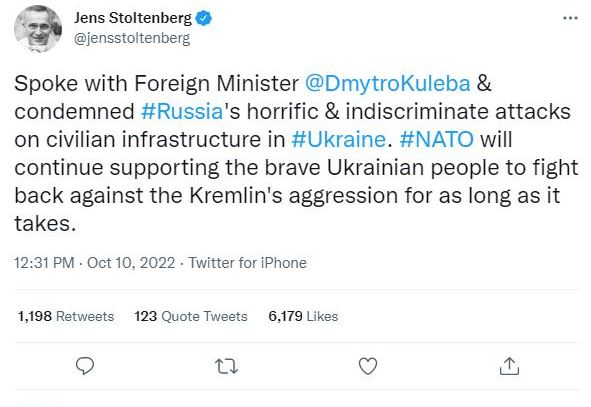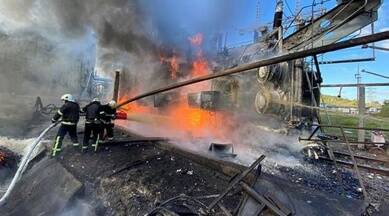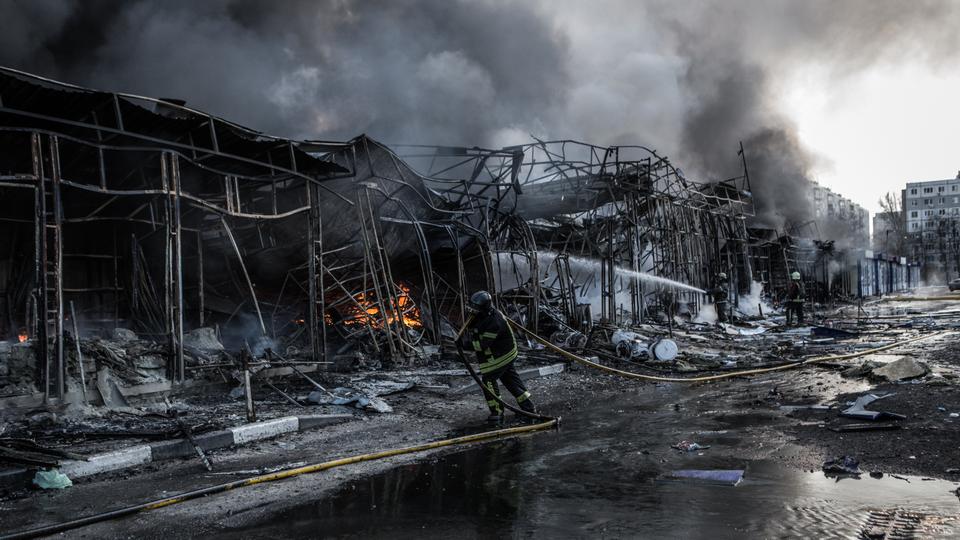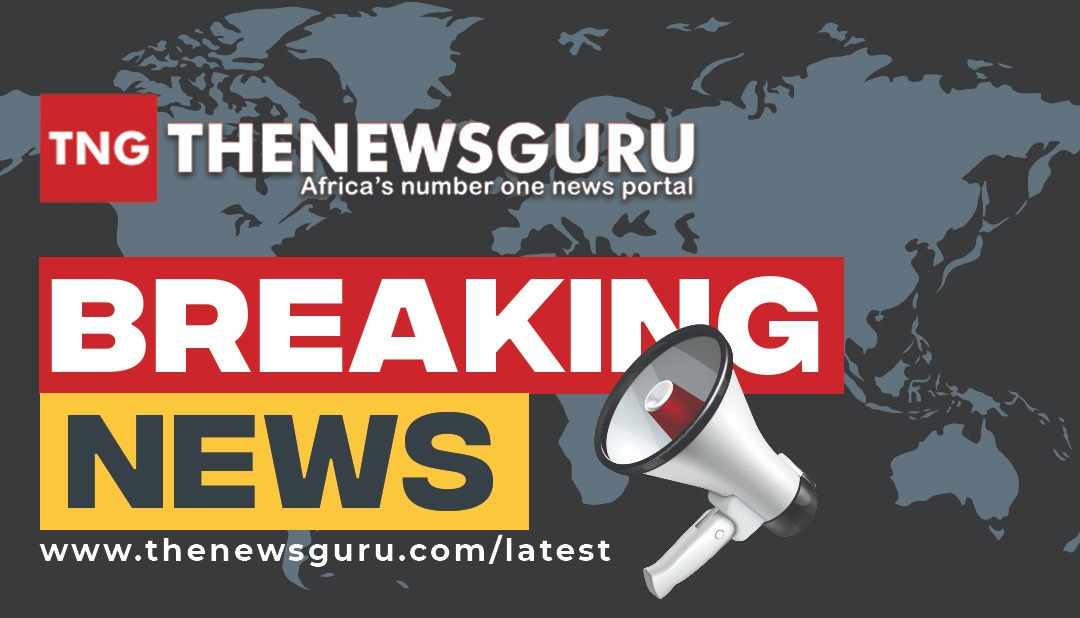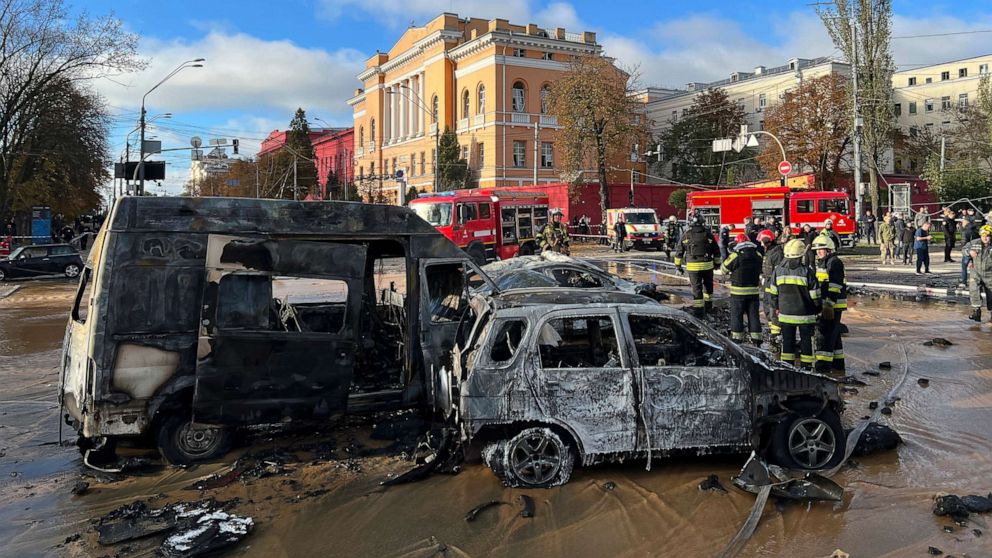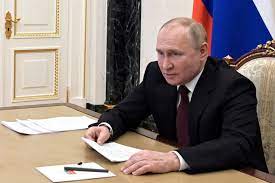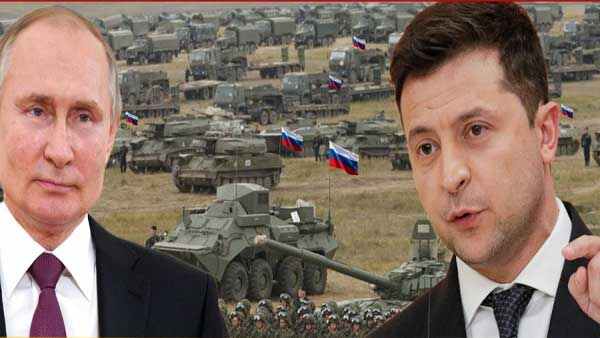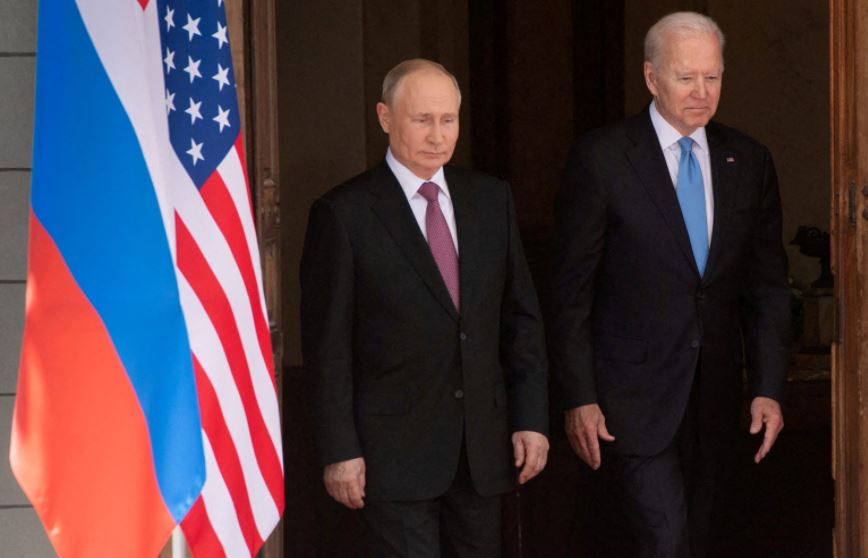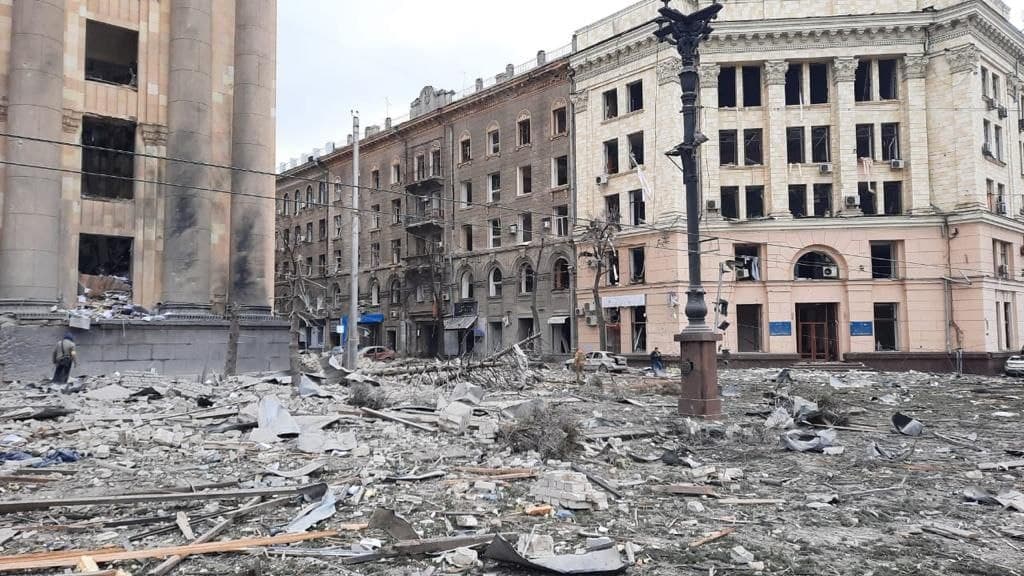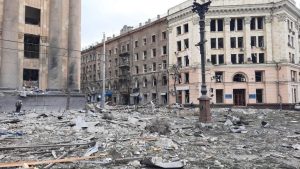As the Russian war machine continues to unleash death, destruction, and misery upon Ukraine, following President Vladimir Putin’s February 24th “Special Operation” that has so far witnessed thousands of civilian casualties (especially children, women, the elderly and infirm), humanity is once again reminded that war, irrespective of efforts by the 1949 Geneva Convention to humanize its conduct, is an aberration symbolizing the descent of man into the abyss of abasement and bestiality. And, as the American Civil War hero, General Tecumseh Sherman, aptly stated about a century and half ago, “war is hell” where unimaginable cruelties and barbarities occur.
Unfortunately, humanity is often quick to succumb to the lure of militarism and war in order to resolve inevitable conflicts arising from self-aggrandizing power-struggles. President Putin provides the latest example, having unwisely resorted to a demonstration of Russian military might, rather than seek a diplomatic solution to the long-running Russo-Ukraine crisis.
Steeped in Russian nationalism and irredentism, Putin is, undoubtedly, a “student” of the 19th Century theoretical school of General Carl von Clausewitz, which holds that “war is a continuation of politics by other means.” But, events in Ukraine have shown that he hasn’t properly digested Clausewitz’s war-diplomacy nexus, developed when war was fought by infantry soldiers armed with Dane guns and bayonets hence, its destructiveness was insignificant compared to present-day armed conflicts featuring various types of lethal weapons.
There is no gainsaying the fact that the Russian military (2nd only to the US’) boasts some of the world’s most technologically-advanced lethal weapons, including those of mass-destruction – biological, chemical, and nuclear. In light of this situation, it is predictable that a Russian invasion force can wreak unprecedented havoc on a militarily inferior Ukraine, in a manner that the world is currently witnessing in the cities of Bucha, Chernihiv, Kharkiv, Kyiv, Mariupol, etc.
Putin, a trained lawyer and a Soviet-era KGB spy, may have heard of General Tecumseh Sherman and his American Civil war exploits, even though he is not likely to be an admirer of the war hero. For, while General Sherman eventually turned a pacifist, who denounced war, Putin is a militarist who glorifies war as demonstrated in the events leading up to Russia’s invasion of Ukraine, and subsequent actions.
An apostle of the concept of “Total War,” General Sherman is reputed for originating the aphorism “War is hell.” Paradoxically revered and hated for his brutal war tactics, he won the decisive Georgian campaign of 1864, which heralded the Union army’s eventual triumph over the secessionist Confederate forces in the American civil war of 1861 – 1865. Interestingly, in the post-war period, he stridently denounced war as a barbarous and cruel affair. An extract from a personal letter written in May 1865 reads:
“I confess, without shame, I am sick and tired of fighting – its glory is all moonshine; even success the most brilliant is over dead and mangled bodies, with the anguish and lamentations of distant families … it is only those who have never heard a shot, never heard the shriek and groans of the wounded and lacerated, that cry aloud for more blood, more vengeance, more desolation … I declare before God, as a man and a soldier, I will not strike a foe who stands unarmed and submissive before me, but would rather say – ‘Go, and sin no more’ …”
In his capacity as the Commanding General of the US’ Army, Sherman, on June 19, 1879, addressed graduating students of the Michigan Military Academy, thus:
“I have been where you are now and I know just how you feel. It’s entirely natural that there should beat in the breast of every one of you a hope and desire that someday you can use the skill you have acquired here. Suppress it! You don’t know the horrible aspects of war. I’ve been through two wars and I know. I’ve seen cities and homes in ashes. I’ve seen thousands of men lying on the ground, their dead faces looking up at the skies. I tell you, war is hell!”
Perhaps, prior to launching his self-styled “Special Operation” in Ukraine, President Putin might have done well to learn a few lessons on the horrors of war from General Sherman. Alas, the world is now coming to terms with the fact that Putin disdains pacifism and glorifies militarism, and that he firmly believes in the example of Russian power rather than the power of Russian example.
With benefit of hindsight, Yours Sincerely now conveniently asserts that the US and its NATO allies should have paid close attention to the military swagger of President Putin, especially after March 2014, when he annexed the Ukrainian city of Crimea and stirred up separatist revolts in the Donbas region, thus occasioning the breakaway Donetsk and Luhansk People’s Republics – both of which he formally recognized on February 21, 2022, three days before launching the ongoing war.
Had NATO subjected Putin’s utterances to close scrutiny, it would have realized that his aggressive Russian irredentist militarism was bound to spark off a major conflagration in Europe, sooner than later. Of specific note was his address to the Russian Federal Assembly on March 1, 2018, during which he gloated about Russia’s development of hypersonic weapons that were unrivalled in terms of speed, maneuverability, precision, and lethality:
“Countries with high research potential and advanced technology are known to be actively developing so-called hypersonic weapons … Of course this kind of weapon provides substantial advantages in an armed conflict. Military experts believe that it would be extremely powerful, and that its speed makes it invulnerable to current missile and air defence systems, since interceptor missiles are, simply put, not fast enough. In this regard, it is quite understandable why the leading armies of the world seek to possess such an ideal weapon. Friends, Russia already has such a weapon.”
In a bellicose and overconfident tone, amidst cheers from the audience, he issued a veiled threat to the US and its NATO allies:
“I hope that everything that was said today would make any potential aggressor think twice … Now we have to be aware of this reality and be sure that everything I have said today is not a bluff ‒ and it is not a bluff, believe me …”
Again, on December 24, 2019, in a meeting with Russia’s top military brass, Putin enthused that Russia’s hypersonic weapons was a game-changer in terms of global military rivalry, noting that the US was now playing catch-up. Gleefully, he announced that one of the missiles, the “Avangard,” had an intercontinental range and can fly at 20 times the speed of sound:
“Now we have a situation that is unique in modern history when they are trying to catch up to us … Not a single country has hypersonic weapons, let alone hypersonic weapons of intercontinental range … It’s not a chess game where it’s OK to play to a draw … Our technology must be better.”
Suffice to say that in its ongoing onslaught on Ukraine, Russia has twice deployed hypersonic missiles: On March 19, 2022, it reportedly used a “Kinzhal” missile, which flies at 10 times the speed of sound, to destroy a fuel depot in the city of Mykolaiv; and a similar missile to destroy an underground arms deport in the village of Deliatyn on March 20, 2022.
In an article titled “President Putin and The Resurgence of Global Geopolitical Gangsterism,” published in THENEWSGURU on March 1, 2022, Yours Sincerely likened Putin’s disdain for diplomacy to the hawkish militarism of former US’ Presidents Reagan, Bush (Sr.) and Bush (Jr.), all of whom respectively oversaw various military operations in Grenada, Libya, and Nicaragua; Panama; Afghanistan and Iraq. But, as Putin’s barbaric and brutal war upon Ukraine now shows, the American trio deserves commendation (ironically though) for having taken the trouble to minimize both military and civilian casualties during the said operations.
It’s a truism that Putin firmly believes in Russia’s deployment of devastating firepower in order to overcome enemy forces in a war situation. In 1999 – 2000, Russian troops bombarded the regional capital city of Grozny into submission as they sought to flush out tenacious Chechen Islamist rebels from Chechnya region. Also, in the Syrian civil war, Russian intervention forces literally reduced to rubble the rebel-held cities of Aleppo, Homs, Hama, etc. in order to turn the scales in favour of embattled President Bashir al-Assad. In light of the foregoing, Russia’s ongoing bombardment of Ukrainian towns and cities is not unexpected.
Some analysts opine that Putin’s invasion of Ukraine is designed to test the plausibility of his claims to Russia’s global military superiority. But, the reality is that Russia’s scotched earth tactics involving the indiscriminate bombing of civilian targets, including residential buildings, hospitals, schools, churches, etc., has only served to detract from that vaunted claim. More so, it has revealed the Russian authoritarian leader’s true identity: a barbarian of the wickedest type.
Like Adolf Hitler’s, Putin’s aggressive nationalism and irredentist militarism cannot be pacified through peaceful overtures. He must be defeated militarily, so as to realize that barbaric militarism is an aberration in a 21st Century globalized society. Hitler-type aggressors understand only the language of counter-aggression; pacifism signifies weakness.
Meanwhile, the West, especially the US, would do well to also show high-level concern towards violent conflicts in Africa, where irreconcilable ethnic and religious antagonisms often boil over into war. In truth, Africa’s wars are much more brutal and barbarous than Putin’s ongoing hellish war on Ukraine: witness the unending bloodletting in Congo, Sudan, South Sudan, Libya, Ethiopia, etc.
In any case, as pacifists such as General Sherman have rightly pointed out, “war is hell,” and its only antidote is avoidance. Vladimir Putin and other war-mongers of his ilk must be made to learn this vital lesson.
Dennis Onakinor, a global affairs analyst, writes from Lagos – Nigeria. He can be reached via e-mail at dennisonakinor@yahoo.com
